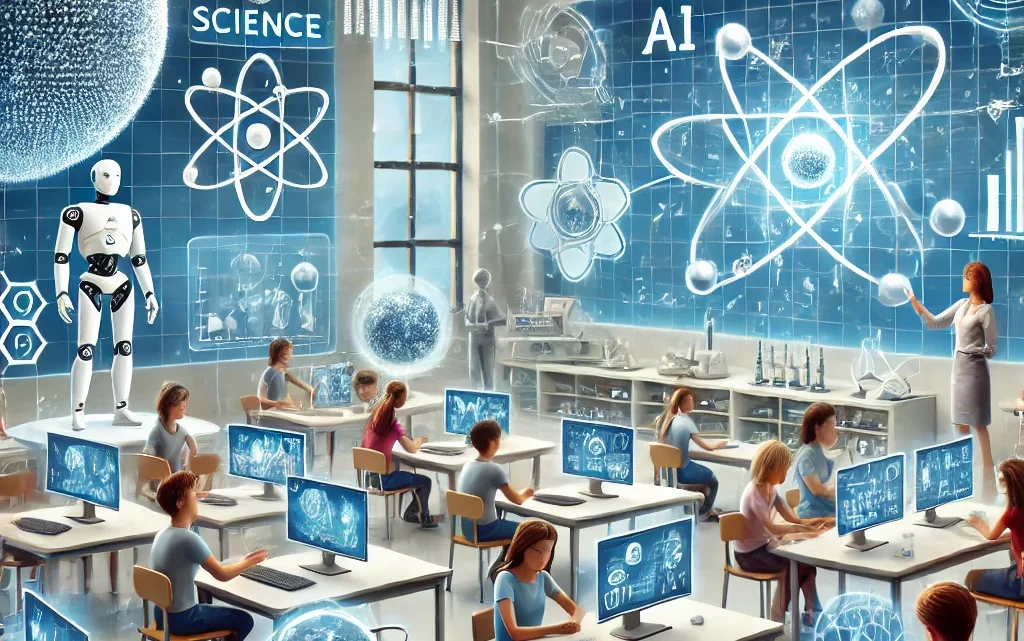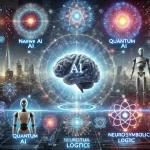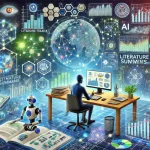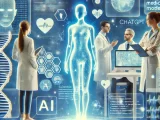
How AI is Revolutionizing Science Education
December 17, 2024AI is Revolutionizing Science Education
Artificial Intelligence (AI) is transforming science education, offering new opportunities to enhance teaching methodologies and improve learning outcomes. Recent studies underscore AI’s ability to increase student engagement, provide personalized learning experiences, and elevate academic performance across science disciplines. This integration marks a pivotal shift, bridging gaps in traditional education and redefining how students interact with complex scientific concepts.
Boosting Student Engagement and Motivation
One of AI’s most notable impacts in science education is its ability to foster greater engagement and motivation among learners. By introducing interactive tools and adaptive technologies, AI creates dynamic learning environments that captivate students’ attention and stimulate their curiosity. These tools simplify complex topics, making them accessible and relatable. Such active engagement ensures that students remain motivated to explore and understand subjects like physics, chemistry, and biology.
Personalized Learning for Better Outcomes
AI excels in personalizing education, catering to individual student needs and learning styles. Through advanced data analysis, AI systems can assess students’ strengths and weaknesses, offering tailored instructional materials and customized feedback. This personalized approach addresses learning disparities by supporting lower-performing students while enabling high achievers to excel further. As a result, AI tools help bridge performance gaps and promote equity in science education, ensuring that every student has the opportunity to thrive.
Improving Academic Performance
Studies consistently demonstrate that AI-integrated classrooms yield better academic results than traditional settings. AI tools enhance problem-solving skills and encourage deeper understanding of scientific concepts. Students in AI-supported environments tend to achieve higher test scores, with many reporting improved comprehension of complex topics. This success can be attributed to AI’s ability to simplify learning, identify knowledge gaps, and offer real-time guidance.
Understanding the Variability in AI’s Effectiveness
While AI shows great promise, its effectiveness can vary depending on the subject matter, context, and specific AI tools used. Certain AI models perform better in solving specific problems, while others may struggle to address nuanced scientific content. Research comparing tools like Google Bard, ChatGPT, and Bing Chat highlights discrepancies in their problem-solving capabilities, emphasizing the importance of selecting appropriate AI technologies for specific educational needs.
Addressing Challenges in AI Integration
Despite its benefits, integrating AI into science education comes with challenges. AI tools may sometimes fall short in comprehending subject-specific nuances, limiting their effectiveness. Additionally, AI resources must be critically evaluated to ensure they align with the goals of educators and learners. Adaptability to diverse teaching settings is crucial, as poorly implemented AI tools can hinder rather than help the learning process. Educators play a critical role in overcoming these barriers by thoughtfully integrating AI technologies into their classrooms.
Conclusion
AI is undeniably revolutionizing science education by enhancing student engagement, personalizing learning experiences, and improving academic outcomes. However, the variability in AI tools’ effectiveness and the challenges surrounding their integration underscore the need for ongoing research and thoughtful implementation. Educators, researchers, and policymakers must work together to maximize the potential of AI while addressing its limitations. As AI technologies continue to evolve, they hold the power to create an inclusive and dynamic future for science education, enabling students to achieve their full potential.


















